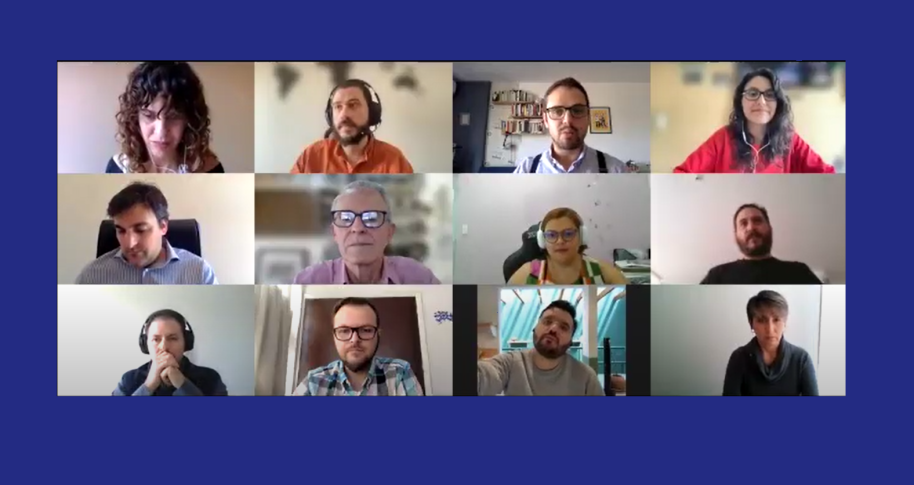
A regional pro-encryption agenda aimed at guaranteeing the development of the internet ecosystem together with the exercise of democracy and respect for human rights.
The Alliance for Encryption in Latin America and the Caribbean (AC-LAC) was officially launched on 21 October, coinciding with the first ever annual Global Encryption Day. The launch included a live online event, #ACLAClive, with active participation by representatives of the 15 organisations that comprise the Alliance.
The participants jointly reviewed the basic agreements reached by AC-LAC with regard to encryption, including the need for the defence of human rights, especially the rights to privacy and freedom of expression; the need to generate a common framework of agreements; and the possibilities for the translation of those agreements into policies and regulations at the highest level that can effectively protect the right to encryption.
The online event gave rise to a lively discussion divided into two parts. The first part was a round of presentations by the member organisations, which focused on the implications and challenges of a multistakeholder coalition such as this one. The second part was a question-and-answer session that addressed issues such as the importance of a common regional agenda, despite the different realities in different countries, and the importance of building capacity and sources of information around the advantages of strong encryption in Latin America and the Caribbean.
The discussion also addressed ways to build links between the media and journalism and an agenda on encryption, and how to reach the most vulnerable sectors through those links. It also considered the negative consequences of not creating effective messages around encryption and how the subject has been dealt with in the media, especially in relation to "fake news" and disinformation, which has served to discourage a proactive agenda for more effective and advanced regulation of encryption. Finally, there was some discussion about the effects of the "hyper digitisation" that took place during the pandemic and ways to place the subject of encryption on local agendas.
Among the participants, what resonated most strongly and was repeatedly highlighted was the fact that, without exception, weakening encryption for a particular case means weakening encryption in all cases.
The representatives of the Alliance's member organisations who took part in the event, in order of appearance, were:
-
Flavio Reich Wagner, president of the Brazilian Chapter of the Internet Society
-
Fernando Rojas, senior assistant for Economic Affairs at the Economic Commission for Latin America and the Caribbean (ECLAC)
-
Luiza Brandão, director and founder of the IRIS Institute
-
Gaspar Pisanu, Latin America policy manager at Access Now
-
Veridiana Alimonti, associate director for Latin America Policy at the Electronic Frontier Foundation (EFF)
-
Paulo Rená, representative of the Coalizão Direitos na Rede
-
Raquel Saraiva, president and founder of IPrec
-
Vladimir Cortés, Digital Rights Programme officer at ARTICLE 19
-
Andrés Velázquez, representative of the K+LAB: Privacy and digital security lab at Fundación Karisma
-
Valeria Betancourt, manager of the Communications and Information Policy Programme at APC
-
Luis Fernando García, executive director of R3D
-
Juan Carlos Lara, executive co-director of Derechos Digitales
-
Raúl Echeberría, executive director of ALAI
-
Andrés Piazza, co-director of the Institute for Digital Development in Latin America and the Caribbean (IDD LAC).
Journalist Juan Pablo Carranza served as moderator, ensuring a dynamic and smoothly balanced flow of participation and discussion.
The date of the event purposely coincided with the worldwide celebration of Global Encryption Day, in which strong encryption was in the spotlight around the globe to defend a more secure, reliable and strong internet for all users and the services offered through it.
You can watch the full event (conducted in Spanish and Portuguese) here: